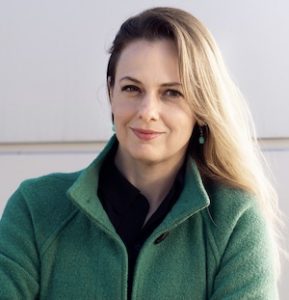We’d find them nestled behind earlobes, amidst eyelashes, between fingers, in folds of the neck, along the scalp, behind knees, cozy in armpits, in zigzagged waistband imprints, hidden in eyebrows, or brazenly mid-chest. Who knew the body had so many hiding places?
There is always a bolt of shock when the examined spot—a speck of dirt, a freckle?—comes alive with spidery legs. Mother and child then engage in a practiced routine—a submission of the body, a pinch of skin, a tug of war with a barbed proboscis, a cold swab of alcohol. The wriggling visitor is always observed with a mixture of wonder and disgust.
At pick-up time, the teacher hands me a small piece of blue paper. A tick encased in plastic tape is attached, labelled with my child’s name, the date, and time. 9.00 Uhr. 29. Mai. It was found on the throat, and I’m told we should observe the area for a few weeks. There weren’t any ticks in Brooklyn. Romantic ideas about forest kindergartens are one of the reasons I was drawn to Germany. We celebrated a fourth birthday on the sidewalk in front of our 800-square-foot apartment and then boarded a plane for fields and forests. It was intended to be a year for me to finish my dissertation and a chance for the children to learn their father’s language. Best now, we were told, when the brain’s still plastic and hungry for new language. Unlike my stiff graduate school-trained, word-sated mouth, unable to form the doughy German ö at the back of the throat, the children gooble up this new language and are speaking fluently to teachers and friends within weeks. I am a shockingly slow learner. I spend my mornings in a dimmed room wielding pixelated daggers like epistemic and irreducibility. Later, I blink in the soft afternoon light stumbling through basic niceties with the German parents waiting to collect their children in the damp forest.

